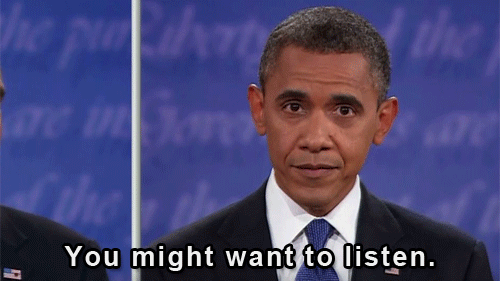What do you think?
Rate this book


493 pages, Hardcover
First published October 8, 2013








Picture it: You're curled up on the couch, lost in a fantastic story on your new Kindle Paperwhite, when you come across the most amazing passage. It sends shivers down your spine... or it makes you laugh... or it captures something important to you. And you can't wait to see if your friends feel the same way. Now there's no need to put down your new Kindle Paperwhite to jump on Goodreads and share it with your friends... Starting today, Goodreads is inside your books on the new Kindle Paperwhite. Reading and discussing books are no longer separated—your reading experience is all on one device!1!!11!!!1!! [creative punctuation added]

First off, let me say that the lack of chapter markers was a smart play. The format threw me off balance, which kept me on my toes, a useful trick in a read like this. Or as one character put it: “I want you on your toes, off-balance, intimidated, handcuffed and willing to prostrate yourself at my command.” It also did an exhilarating job of reeling me in as a reader, making it hard for me to pull back, fully immersing me in the on-campus world through Mae’s eyes. It was like I could feel my own slow inundation with The Circle, which, of course, made the implications as they unfolded a little horrifying, the thought of this utterly realistic and culturally possible phenomenon actually happening. The completely bizarre started to become normal, sounded like it really made sense. Of course everyone should know everything! Of course we should do everything we can to keep children safe (including planting tracker chips in their arms at birth that they can't even remove in adulthood)! Hmph, must be how cults are formed.
Here, Eggers offered a view of our world like Big Brother on steroids. Embedded in the fact that the Google-like company mostly employed millennials—and that we millennials are known for our social media voraciousness and oversharing—it comes off as a totally plausible alter-universe that Mae has stumbled upon when she arrives, both to herself and to the reader. If you’re a typical millennial, read it and take pause. If you’re not—especially if you’d classify yourself a Luddite—read it and weep at this completely conceivable, totally creepy, new-age possibility.
The Circle was comical in its realistic nature, life-like in the way that the interactions between characters were played out. Here you’ll find competition in a survival-of-the-fittest sort of way reflected in passages that unnerve while being so relatable that they’re undeniable. Here Eggers brushes up against classism, caste, struggling to belong and competition, whether healthy or not:
“Annie still held some particular status. Again Annie’s lineage, her head start, the varied and ancient advantages she enjoyed, were keeping Mae second. Always second, like she was some kind of little sister who never had a chance of succeeding an older, always older sibling.”
Eggers pushed situations to a brink that you might be tempted to label over-the-top, but he did so in a way that was contemporary social commentary at its finest. Even Mae’s interactions with the people around her—all strange in their own way—ring hilariously true, from frustrating reprimands from the boss who’s drank too much of the company Kool-Aid to clumsy sex in a dorm (and even a cave, who hasn’t done that, right)? Mae was a realistic 24-year-old character—still bright-eyed and bushy tailed, initially worried about her student loans and her parents’ health and well-being, feeling weighed down by her responsibility as an only child, and that contributed immensely to the direction that the plot took, as we see her being stripped down to conform to a new mold. I loved watching her and being a part of her world. In fact, Eggers wrote a world that I wished I was a part of, one of the reasons that we read in the first place. He constructed a world where social media reigns supreme, where privacy is the enemy, an awesome looking glass of us all being reduced to screen-scrolling sheep.
“Here…there are no oppressors. No one’s forcing you to do this. You willingly tie yourself to these leashes. And willingly become utterly socially autistic. You no longer pick up on basic human communication clues. You’re at a table with three humans, all of whom are looking at you and trying to talk to you, and you’re staring at a screen, searching for strangers in Dubai.”
Imagine a world where e-media and all-encompassing surveillance are the prime forms of communication and interaction across the globe. It’s also how you vote, how you pay your taxes, how you shop online. Your social media profile is how the world—the government, even—sees you. You’re now living in “…the world’s first tyrannical monopoly.” That’s a scary, chilling thought that Eggers executed fluidly, with clarity and intrigue. With mounting anxiety, both on the part of the reader and the main protagonist, Mae, until…until it all seems perfectly normal. And that’s the scary part.
I knew that this one was getting 5 stars from about the mid-way point, and hoped that it wouldn’t disappoint with some hastily done bow-tie ending or weak sort of sputtering out like it was tripping over the marathon finish line. But, it did not. It held up its end of the bargain, so I’ll hold up mine: a well-deserved 5 stars. *****
**By the way, the movie version of this DID NOT do this book justice! Don't judge this book from the movie!**
FOLLOW ME HERE:
Goodreads | Twitter | Instagram | Get a Copy of My Book | Book Editing, Author Coaching, Submit Your Book to Me













